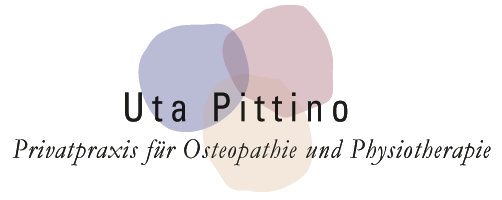Whether vitamins, minerals or trace elements – through a comprehensive micronutrient analysis, we precisely determine your micronutrient status and analyze exactly which nutrients are deficient. On the basis of this
laboratory diagnosis, the required nutrients can then be taken specifically as a dietary supplement. In the case of acute micronutrient requirements, the supply of the body via infusion therapy can be carried out particularly quickly and optimally dosed.
MICRONUTRIENT THERAPY IN MUNICH
REMEDY NUTRIENT DEFICIENCY. PROMOTE HEALTH.
VITAL SUBSTANCES AS MEDICINE
ORTHOMOLECULAR THERAPY WITH MICRONUTRIENTS
Unlike the macronutrients that provide energy to the body (e.g. carbohydrates), micronutrients are substances that the body needs in relatively small amounts. They are involved in many metabolic processes and thus contribute to the healthy functioning of the organism. Some micronutrients, such as vitamin D or C, can even prevent disease.
With a healthy and balanced diet, we absorb almost all micronutrients through our food. However, certain factors such as acute or chronic illnesses, poor diet or personal stress (e.g. stress, consumption of stimulants) can lead to a deficiency. Through the targeted supply of the required nutrients as part of micronutrient therapy (also called orthomolecular therapy), we can remedy this deficiency and effectively strengthen your health and resistance.
MICRONUTRIENT THERAPY IS PARTICULARLY TARGETED AND FAST
MICRONUTRIENT THERAPY HELPS WITH ILLNESS AND HIGH STRESS
One of the most common reasons for micronutrient deficiencies is disease and environmental pollution. In some cases, higher doses may be required to ensure an adequate supply for the body and metabolism. Special physical stress (e.g. competitive sports, pregnancy) also causes a significantly increased need for micronutrients, as the body consumes more nutrients when it is challenged. With micronutrient therapy, this need can be optimally covered.
MICRONUTRIENT THERAPY HELPS WITH PSYCHOLOGICAL STRESS
In addition to illnesses and physical stress, psychosocial stress can also lead to chronic illnesses. Pressure at work, at school or at home, existential fears, loneliness, pressure to perform and addictive behavior put our body in a state of stress and let it consume many times more vital substances. This additional consumption can also be specifically covered by micronutrient therapy.
MICRONUTRIENT THERAPY IS ALSO USEFUL FOR PREVENTION
With micronutrient therapy, not only chronic diseases and deficiencies can be positively influenced. It also helps to noticeably improve physical and mental well-being and to maintain long-term health. Even for the prevention of diseases, the intake of micronutrients (e.g. vitamin C and vitamin D) as a dietary supplement is useful if the normal diet cannot meet the need.
WHAT MICRONUTRIENTS DOES ORTHOMOLECULAR THERAPY USE?
Since our body can only produce a few micronutrients (vital substances) itself, a large part must be supplied specifically as part of micronutrient therapy if there is a corresponding deficiency. These include in particular the following nutrients:
- Minerals
- Vitamins
- Trace elements
- Fatty acids
- Amino acids
- Secondary plant substances
- Pro- and prebiotics
- Detailed micronutrient overview
THIS IS HOW MICRONUTRIENT THERAPY WORKS HERE IN MUNICH
1. Initial consultation/anamnesis
At the beginning of the treatment there is always a detailed anamnesis interview, in which we analyze any complaints, your diet and your living environment. On this basis, we determine which values are to be examined in the laboratory as part of the micronutrient analysis.
2. Laboratory diagnostics (micronutrient analysis)
Using special, holistic laboratory diagnostics, we measure the relevant micronutrients or their degradation products in the urine or blood. This allows us to precisely determine your nutrient status and reliably determine a deficiency of certain micronutrients.
3. Therapy plan
Based on these laboratory values, the symptoms and the possible need for medication, we create a therapy plan and determine the individual intake of micronutrients.
4. Treatment
Depending on how quickly and in which dosage the body needs the micronutrients, they are taken either in capsule or tablet form or as individual infusion therapy (e.g. vitamin C in high doses). The success of the therapy is measured by further laboratory tests.
WHEN IS MICRONUTRIENT THERAPY USEFUL
Micronutrient therapy is generally useful as soon as there is a nutrient deficiency that cannot be compensated for by the normal diet. This is usually the case with diseases. But also personal stress such as stress, stimulant consumption, lack of sleep, one-sided diet, hard physical work, absorption disorders in the intestine and food intolerances or increased need during pregnancy, competitive sports or in professionally very demanding phases can lead to an additional requirement. Common indications for micronutrient therapy can be found on the right.
- Disease prophylaxis
- Pain (inflammation)
- Fatigue / Chronic Fatigue Syndrome (CFS)
- Decrease in performance
- Burnout syndrome
- Insomnia
- Depressions
- Performance enhancement in sports
- Multiple sclerosis
- Fibromyalgia
- Anti-aging
- Lack of motivation
- Mood
- Nervousness
- Headache
- Skin problems
FREQUENTLY ASKED QUESTIONS ABOUT MICRONUTRIENT THERAPY
Yes, in very many cases this is true. Although we now have a more diverse food supply than ever before, the micronutrient content in most foods is no longer particularly high. This is due, for example, to the excessive use of plant protection products, the keeping and feeding of animals on mass farms and the increasing use of preservatives and additives.
Psychosocial stress such as stress at work or school, bullying, existential fears, loneliness, pressure to perform and addictions put our body in a state of alarm. The metabolism is strengthened and we consume many times more micronutrients.
Basically, all micronutrients that it cannot consume in sufficient quantities through the normal diet can be supplied to the body as part of micronutrient therapy – either as a dietary supplement or by infusion. A list of the most commonly used nutrients can be found below.
Vitamins:
- Vitamin C (L-ascorbic acid)
- Vitamin B1 (thiamine)
- Vitamin B2 (riboflavin)
- Vitamin B3 (niacin/niacinamide)
- Vitamin B5 (pantothenic acid)
- Vitamin B6 (pyridoxine)
- Vitamin B12 (cobalamin)
- Folic acid (pteroylglutamic acid)
- Biotin (Vitamin H)
- Vitamin A (retinol)
- Beta-carotene
- Vitamin E
- Vitamin D (calciferols)
- Vitamin K (phylloquinones)
Vitaminoids:
- Alpha Lipoic Acid
- L-Carnitine
- Coenzyme Q10
- Orotic acid
- Choline
Minerals:
- Calcium
- Magnesium
- Potassium
- Sodium
- Phosphorus
Trace elements:
- Selenium
- Zinc
- Iron
- Iodine
- Fluorine
- Chromium
- Copper
- Manganese
- Molybdenum
- Boron
- Vanadium
Secondary plant substances:
- Astaxanthin
- Capsaicin
- Indole
- Isothiocyanates
- Flavonoids
- Furfurole
- Ligans
- Monoterpenes
- Phytic acid (phytates)
- Polyphenols
- Organic sulphides
Essential fatty acids:
- Omega 3 fatty acids
- Omega 6 fatty acids
- Gamma-linolenic acid
Amino acids:
- L-Arginine
- L-Glutamine
- L-glutamic acid
- L-glutathione, N-acetylcysteine
- Glutathione
- Glycine
- L-histidine
- L-lysine
- L-methionine
- S-adenosylmethionine
- L-Ornithine
- L-phenylalanine
- L-Tyrosine
- Taurine
- L-Tryptophan
- Creatinine
- Leucine, isoleucine, valine






